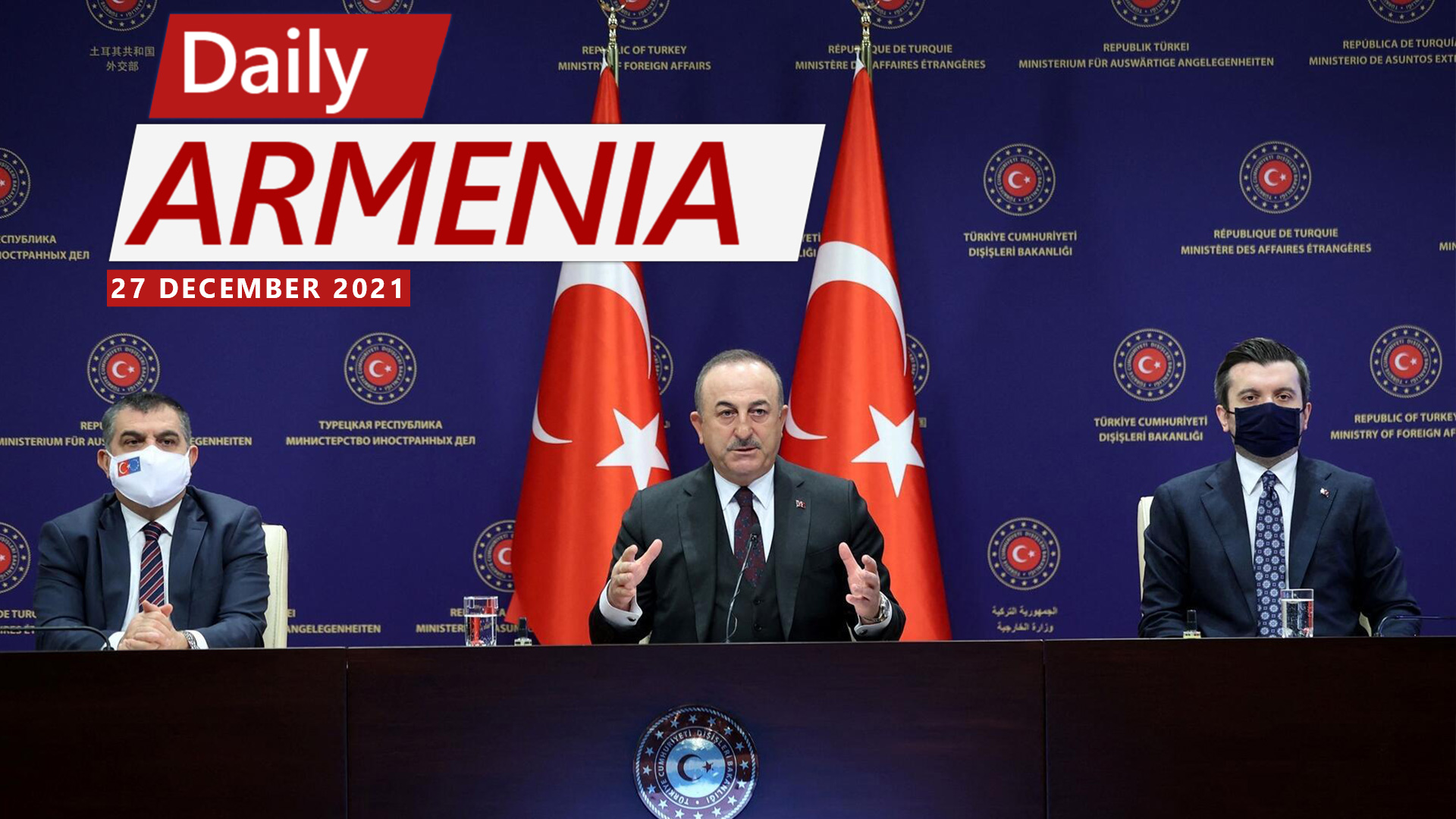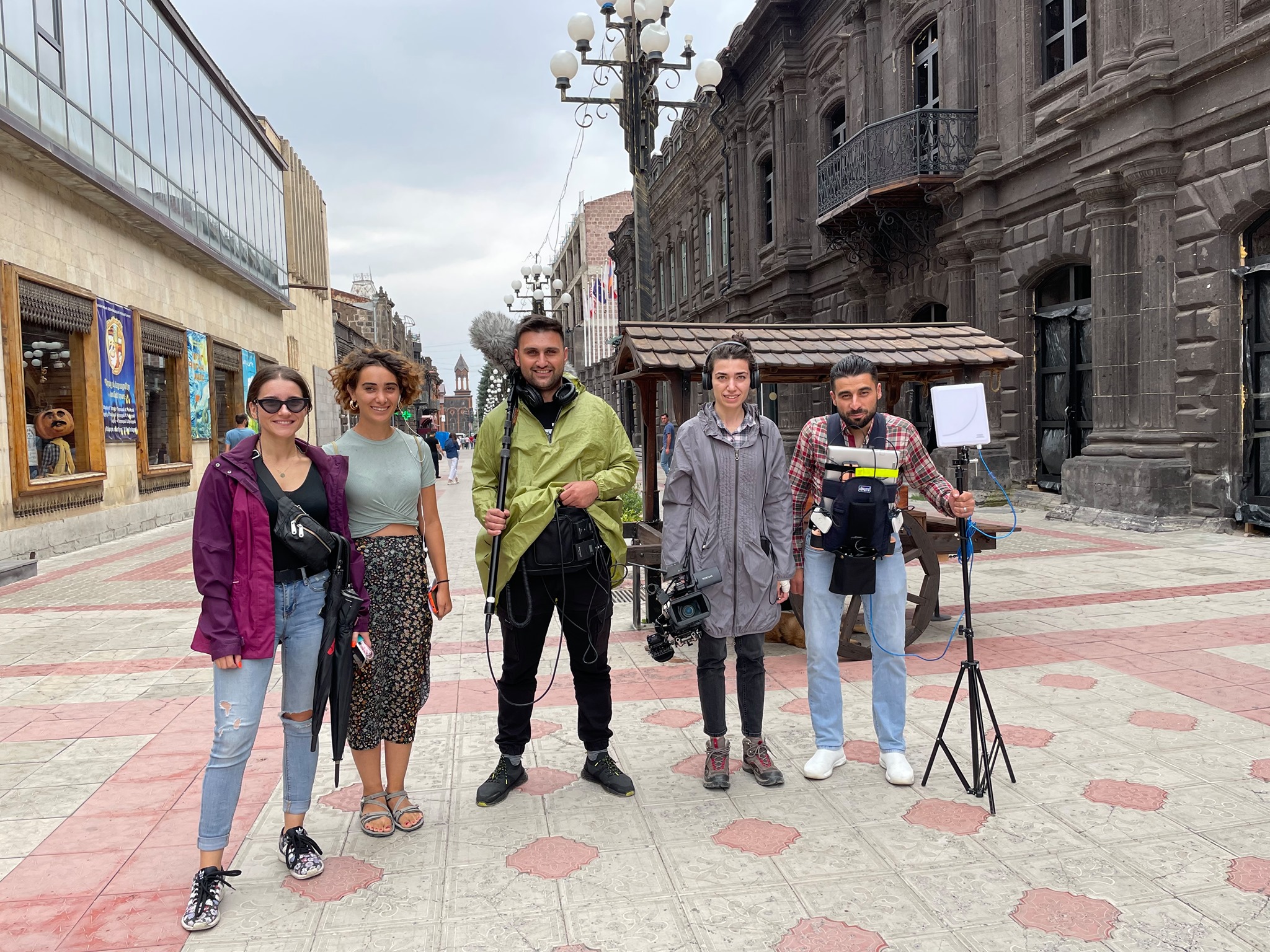Special Envoys from Armenia and Turkey to meet in Moscow
Prime Minister Nikol Pashinyan makes a number of controversial statements regarding the Karabakh negotiation…
Read morePrime Minister Nikol Pashinyan makes a number of controversial statements regarding the Karabakh negotiation…
Read moreAraksya Karapetyan, an anchor of Good Day LA on the FOX 11 channel, gives insight on how the diaspora…
Read moreI go to places taking others with me: the TV program “Come with me” has been produced in 2020, during…
Read moreAni Avetisyan Several reports showing visual evidence of the damage or complete demolition of cultural and religious sites in Nagorno-Karabakh emerged in the past week. Among the destructed areas are the cemetery of Shushi near the Ghazantschetsots church, the Kanach Zham church also in Shushi and, more shockingly, the entire village of Karintak. Threats to Armenian cultural heritage in Azerbaijan have been voiced by a number of politicians, experts and organizations. In one of its several provisional measures, the International Court of Justice demanded that Azerbaijan take steps to protect the Armenian cultural sites in its territory, and punish the […]
Controversy is raging over the Armenian government’s agreement with Azerbaijan to demarcate parts of the border which critics call a unilateral withdrawal from territory by Armenia. Residents of the affected area in Tavush have risen in protest, blocking vital roads and demanding a stop to the process. This CivilNet special report breaks down what you need to know about this developing story.
The Center for Truth and Justice, a U.S.-based nonprofit, formally asked the International Criminal Court to investigate Azerbaijan’s leaders for genocide last week, marking the first such petition to the tribunal since Armenia joined earlier this year. CivilNet’s Mark Dovich traveled to The Hague, Netherlands, to observe the proceedings and hear firsthand from the CFTJ team about their groundbreaking work.
In this episode of the Civilnet Podcast, host Patrick Elliott and Eric Hacopian unpack the border delimitation agreement with Azerbaijan starting in Tavush in Armenia’s northeast corner, followed by the landmark International Criminal Court case against Azerbaijan. They finish with the ongoing hunger strike by Ruben Vardanyan from his prison cell in Baku.
Introduction Welcome to DEMOCRACY WATCH, brought to you by CivilNet and the Regional Center for Democracy and Security. Weekly recaps will highlight and examine the pivotal challenges facing Armenia’s democratic institutions. Political Repression On April 15, opposition activist Samvel Vardanyan confronted ruling party deputy Hakob Aslanyan on a bus and began insulting him. After this incident, police officers arrived at Vardanyan’s home and detained him. On the trip to the police station, the officers stopped the car and left, claiming they needed to relieve themselves. Vardanyan reports that masked individuals then approached the car and began assaulting him. They spat […]
Georgia’s parliament approved the first reading of a bill on “foreign agents” this week, sparking protests in the capital Tbilisi. The proposed law would require media outlets and non-profit organizations that receive over 20% of their funding from abroad to register as entities influenced by foreign sources. As lawmakers deliberated on the legislation, thousands gathered in front of the parliament building in Tbilisi to protest. Critics argue that the legislation could harm Georgia’s long-desired aspirations to become a member of the European Union.



